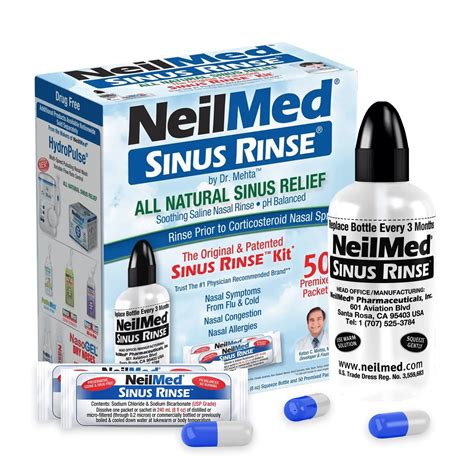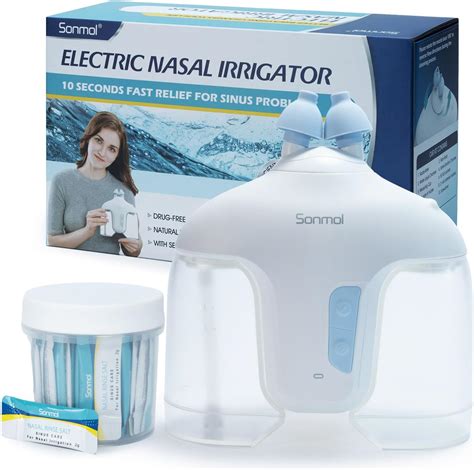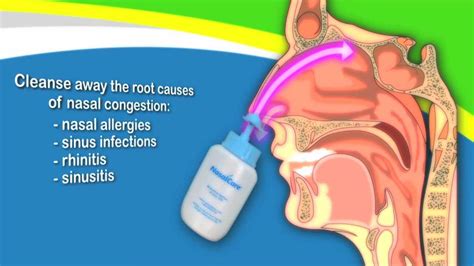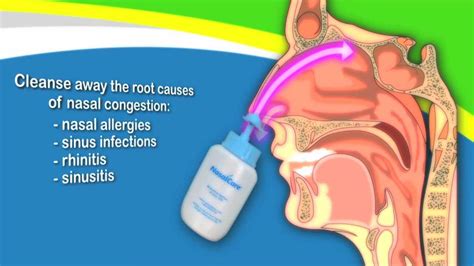Intro
Relieve congestion with a saline nasal flush, using a neti pot or squeeze bottle to rinse your nasal passages, promoting sinus health and easing sinusitis symptoms.
Rinsing the nasal passages with a saline solution is a simple yet effective way to promote nasal health and alleviate congestion. This technique, often referred to as nasal irrigation or nasal lavage, involves flushing the nasal cavity with a sterile or distilled saline solution to remove debris, allergens, and excess mucus. By doing so, individuals can experience relief from nasal congestion, reduce the severity of colds and sinus infections, and improve overall respiratory health. The importance of maintaining good nasal hygiene cannot be overstated, as it plays a crucial role in filtering, warming, and humidifying the air we breathe, making it essential for our overall well-being.
The nasal passages are lined with mucous membranes that produce mucus, a thick, protective fluid that traps dust, bacteria, and other foreign particles, preventing them from entering the lungs. However, when the nasal passages become congested due to a cold, allergies, or sinus infection, the excess mucus can cause discomfort, breathing difficulties, and even lead to more severe respiratory issues. This is where flushing the nose with a saline solution comes into play, offering a natural and non-invasive method to clear out the nasal passages and restore normal breathing.
Regular nasal irrigation with saline solution can have numerous benefits, including reducing nasal congestion, alleviating sinus pressure, and promoting healthier nasal mucosa. It can also help to remove allergens and irritants from the nasal passages, reducing the risk of allergic reactions and respiratory problems. Furthermore, nasal irrigation can be particularly beneficial for individuals who suffer from chronic sinusitis, as it helps to flush out bacteria and other microorganisms that can contribute to the development of infections. With its simplicity, effectiveness, and minimal side effects, rinsing the nose with saline solution has become a popular practice among individuals seeking to improve their nasal health and overall quality of life.
Benefits of Nasal Irrigation

The benefits of nasal irrigation are numerous and well-documented. Some of the most significant advantages of this practice include:
- Relief from nasal congestion and sinus pressure
- Reduction in the severity of colds and sinus infections
- Improved nasal hygiene and reduced risk of infection
- Enhanced sense of smell and taste
- Alleviation of allergy symptoms and sinusitis
- Promotion of healthier nasal mucosa and respiratory function By incorporating nasal irrigation into their daily routine, individuals can experience these benefits firsthand and enjoy improved overall health and well-being.
How Nasal Irrigation Works
Nasal irrigation works by flushing the nasal passages with a sterile or distilled saline solution, which helps to loosen and remove excess mucus, debris, and allergens. The saline solution is typically administered using a neti pot, squeeze bottle, or nasal spray, and can be customized to suit individual needs and preferences. The process of nasal irrigation is simple and straightforward, involving the following steps: 1. Prepare the saline solution according to the manufacturer's instructions or by mixing salt and water. 2. Fill the neti pot, squeeze bottle, or nasal spray with the saline solution. 3. Tilt your head to one side and gently pour the solution into the top nostril. 4. Allow the solution to flow through the nasal passage and out the other nostril. 5. Repeat the process on the other side.Types of Nasal Irrigation Solutions

There are various types of nasal irrigation solutions available, each with its own unique characteristics and benefits. Some of the most common types of solutions include:
- Isotonic solutions, which have the same concentration of salt as human tears
- Hypertonic solutions, which have a higher concentration of salt than human tears
- Saline solutions with added ingredients, such as eucalyptus or menthol, for enhanced benefits
- Sterile solutions, which are pre-mixed and packaged for convenience
- DIY solutions, which can be made at home using salt and water
Choosing the Right Nasal Irrigation Solution
When selecting a nasal irrigation solution, it's essential to consider individual needs and preferences. Some factors to consider include: * The level of congestion or sinus pressure * The presence of allergies or sinusitis * Personal preferences for solution texture and temperature * The need for added ingredients, such as eucalyptus or menthol By choosing the right nasal irrigation solution, individuals can optimize the benefits of this practice and enjoy improved nasal health and overall well-being.Nasal Irrigation Devices

There are various nasal irrigation devices available, each with its own unique features and benefits. Some of the most common devices include:
- Neti pots, which are traditional and inexpensive
- Squeeze bottles, which are easy to use and clean
- Nasal sprays, which are convenient and portable
- Bulb syringes, which are gentle and effective
- Sinus rinse kits, which are comprehensive and include everything needed for nasal irrigation
Using Nasal Irrigation Devices
Using nasal irrigation devices is relatively straightforward, but it's essential to follow some basic guidelines to ensure safety and effectiveness. Some tips include: * Always use sterile or distilled water to prevent infection * Clean and dry the device after each use to prevent bacterial growth * Use the device as directed, and avoid forcing the solution into the nasal passages * Start with a gentle flow and gradually increase as needed * Avoid sharing devices to prevent the spread of infectionPrecautions and Side Effects

While nasal irrigation is generally safe and effective, there are some precautions and potential side effects to be aware of. Some of the most common side effects include:
- Nasal dryness or irritation
- Sinus pressure or headache
- Ear fullness or discomfort
- Nosebleeds or bloody discharge To minimize the risk of side effects, it's essential to follow proper technique, use sterile or distilled water, and avoid forcing the solution into the nasal passages.
Contraindications for Nasal Irrigation
There are some contraindications for nasal irrigation, including: * Recent nose surgery or trauma * Nasal polyps or tumors * Sinus infections or abscesses * Deviated septum or other nasal abnormalities Individuals with these conditions should consult their healthcare provider before starting nasal irrigation.Conclusion and Recommendations

In conclusion, flushing the nose with saline solution is a simple, effective, and non-invasive method for promoting nasal health and alleviating congestion. By understanding the benefits, types of solutions, devices, and precautions, individuals can make informed decisions about incorporating nasal irrigation into their daily routine. Recommendations include:
- Starting with a gentle flow and gradually increasing as needed
- Using sterile or distilled water to prevent infection
- Cleaning and drying the device after each use to prevent bacterial growth
- Avoiding forcing the solution into the nasal passages
- Consulting a healthcare provider if experiencing persistent or severe side effects
We invite you to share your experiences and tips for nasal irrigation in the comments below. Have you tried nasal irrigation before? What benefits or challenges have you encountered? Let's discuss and learn from each other.
What is the best type of nasal irrigation solution?
+The best type of nasal irrigation solution depends on individual needs and preferences. Isotonic solutions are generally recommended for most users, while hypertonic solutions may be more effective for severe congestion.
How often should I use nasal irrigation?
+The frequency of nasal irrigation depends on individual needs and health status. Generally, it is recommended to use nasal irrigation 1-2 times a day, or as needed to relieve congestion and sinus pressure.
Can I use tap water for nasal irrigation?
+No, it is not recommended to use tap water for nasal irrigation, as it may contain bacteria, viruses, or other microorganisms that can cause infection. Sterile or distilled water is recommended to ensure safety and effectiveness.
